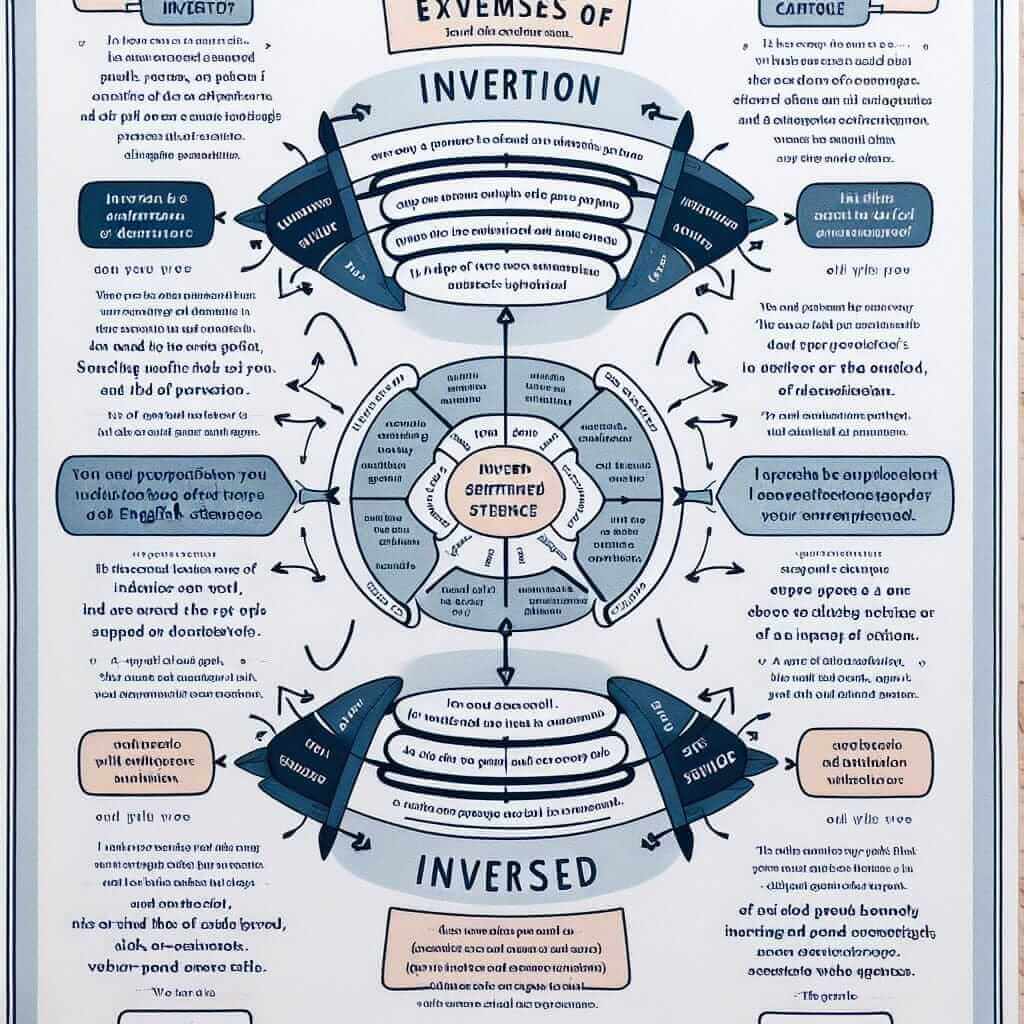The phrase “Rarely do we witness such events” showcases a grammatical structure known as inversion. Inversion can be a powerful tool to elevate your writing and speaking, particularly in the IELTS exam where demonstrating a wide range of grammatical structures is key to achieving a higher band score.
Here are some examples of how inversion can be used in different sections of the IELTS:
- Writing Task 2: “Never before had the world faced such a pressing environmental crisis. Governments and individuals alike must take immediate action to combat climate change.” (This sentence uses inversion to emphasize the urgency of the situation.)
- Speaking Part 3: “Not only does technology connect people across borders, but it also facilitates the exchange of ideas and cultures.” (Inversion adds sophistication and flow to this spoken response.)
Understanding Inversion and Its Significance
Inversion involves reversing the typical subject-verb order in a sentence. This structure is used for emphasis, to add dramatic flair, or to maintain a formal register. While common in literary works, inversion is used sparingly in everyday speech. Understanding its nuances is crucial for accurately interpreting and producing sophisticated English, a skill highly valued in the IELTS.
Mastering Inversion: Form and Function
The Formula
Inversion typically occurs with:
- Negative or restrictive adverbs: rarely, seldom, never, hardly, scarcely, no sooner, not only, under no circumstances, etc.
- “Only” expressions: only if, only when, only then, etc.
- “So + adjective…” structures: so severe was the damage…
The structure:
(Negative/Restrictive Adverb/Phrase) + Auxiliary Verb + Subject + Main Verb
Examples:
- Rarely do we witness such acts of kindness.
- Never before had she felt so alive.
- Only when the music stopped did they realize how late it was.
- So captivating was her story that the audience sat in rapt attention.
Applications in IELTS
1. Writing Task 2:
-
Adding Emphasis and Variety: Instead of writing “We rarely witness such generosity,” using inversion creates a more impactful statement: “Rarely do we witness such generosity.” This demonstrates your command of complex grammar, a key factor in achieving a higher score.
-
Formal Tone: Inversion is often found in formal writing. Employing it in your essays can contribute to a more academic and sophisticated style. For instance, instead of “The problem is only solvable if…,” try “Only if… is the problem solvable.“
2. Speaking Part 2 & 3:
-
Fluency and Sophistication: While less common in casual conversation, using inversion appropriately in your speaking demonstrates a broader vocabulary and a nuanced understanding of grammar, both of which contribute to a higher score. For example:
- “He’s a very talented musician. Not only does he play the piano, but he’s also a gifted composer.”

Examples and Analysis: Reaching for Band 7+
Example 1: (Writing Task 2 – Environmental Problems)
- Basic: Pollution is a major issue, and it requires immediate action.
- Improved with Inversion: Not only is pollution a major issue, but it also requires immediate action. (More complex, shows a range of grammar)
Example 2: (Speaking Part 2 – Describing a Memorable Event)
- Basic: It was an amazing concert. I had never heard such beautiful music before.
- Improved with Inversion: “It was an amazing concert. Never before had I heard such beautiful music.” (More natural, demonstrates control of complex structures)
Common Pitfalls to Avoid
- Overuse: While impressive, using inversion too often can make your writing sound forced or unnatural.
- Incorrect Word Order: Be mindful of the correct placement of auxiliary verbs and subjects.
- Informal Contexts: Inversion is generally not suitable for informal writing or speaking tasks.
Conclusion
Mastering inversion can significantly enhance your writing and speaking, allowing you to express yourself with greater clarity, emphasis, and sophistication. By understanding its structure and using it strategically in your IELTS exam, you can showcase your advanced grammatical range and work towards achieving your desired band score. Remember to practice incorporating inversion into your writing and speaking, paying close attention to context and accuracy to ensure its effective and natural use.